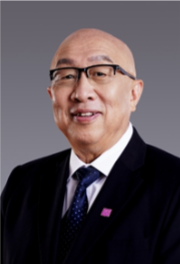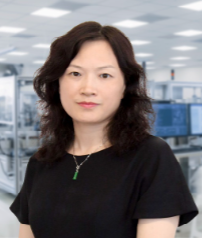 Chair Professor, Wei Zhao
Chair Professor, Wei Zhao
Title: Future of Computing
Bio:
An internationally renowned scholar, Professor Wei Zhao is currently serving the Shenzhen Institute of Advanced Technology as its Chairman of the University Academic Council. Previously, he served the American University of Sharjah as its Chief Research Officer. From 2008 to 2018, he served as the eighth Rector (i.e., President) of the University of Macau. Professor Zhao also served as the Dean of the School of Science at Rensselaer Polytechnic Institute, Director for the Division of Computer and Network Systems in the U.S. National Science Foundation, and Senior Associate Vice President for Research at Texas A&M University. Professor Zhao completed his undergraduate studies in Physics at Shaanxi Normal University, China, in 1977, and received his MSc and PhD degrees in Computer and Information Sciences at the University of Massachusetts at Amherst in 1983 and 1986, respectively.
Abstract:
In this talk, we examine potential developments in the field of computing. Recall that Computer Science is defined as the science of algorithms. The development of computer science and its applications have relied on two cornerstones: Mathematical logic and semiconductor technology. Computing, i.e., execution of an algorithm, is a process of evaluating a logical expression; by the principles of mathematical logic, all logical expression is a combination of simple logical operations, namely, “and”, “or”, and “not”. Thanks to semiconductor technology, these logical operations can be implemented in a substantial manner with high density, high reliability, and low cost. Based on these two cornerstones, the complexity theory has been the major theoretical development of Computer Science. According to this theory, computing problems can be classified as “easy” and “hard”. Easy ones are those in which the computation time is bounded by a polynomial of input size. The majority of computing applications today are in this category. In the future, we must focus on hard problems. One approach is to use non-semiconductor-based physical devices; initial work in quantum computers would fall within this category. Another approach is to develop heuristic algorithms with much lower complexity; this is very much an objective of “Artificial Intelligence” development. The third approach is to leverage properties inherently located within input data, hence improving the computation efficiency.
Chair Professor, Qian Zhang
Title: Pushing the Limit of Mobile Sensing: Intelligent and Secure Sensing Driven Design
Bio:
Dr. Zhang joined Hong Kong University of Science and Technology in Sept. 2005 where she is now Tencent Professor of Engineering and Chair Professor of the Department of Computer Science and Engineering. She is also serving as the co-director of Huawei-HKUST innovation lab and the director of digital life research center of HKUST. Before that, she was in Microsoft Research Asia, Beijing, from July 1999, where she was the research manager of the Wireless and Networking Group. Dr. Zhang has published more than 400 refereed papers in international leading journals and key conferences. She is the inventor of more than 50 granted International patents. Her current research interests include Internet of Things (IoT), smart health, mobile computing and sensing, wireless networking, as well as cyber security. She is a Fellow of the IEEE and the Hong Kong Academy of Engineering Science (HKAES). Dr. Zhang has received MIT TR100 (MIT Technology Review) world’s top young innovator award. She received the Best Paper Awards in several international conferences. She received the Oversea Young Investigator Award from the National Natural Science Foundation of China (NSFC) in 2006. She held the Cheung Kong Chair Professor (长江讲座 教授) in Huazhong University of Science and Technology (2012-2015). Dr. Zhang is serving as Editor-in-Chief of IEEE Trans. on Mobile Computing (TMC). She is a member of Steering Committee of IEEE Infocom. Dr. Zhang received the B.S., M.S., and Ph.D. degrees from Wuhan University, China, in 1994, 1996, and 1999, respectively, all in computer science.
Abstract:
Sensing is an effective means to connect the physical world and digital space. Exploring the intelligent sensing capability has drawn researcher’s great attention. It is quite excited to see in recent years, people have begun to explore the acoustic, wireless signal, light, and other ambient communication medium’s capability for sensing purpose. In this talk, I will introduce some of our work related to how to leverage the acoustic and RF sensing to enable human-centric applications. Moreover, I will point out some potential spoofing attack that may exist in the smart sensing scenario.


